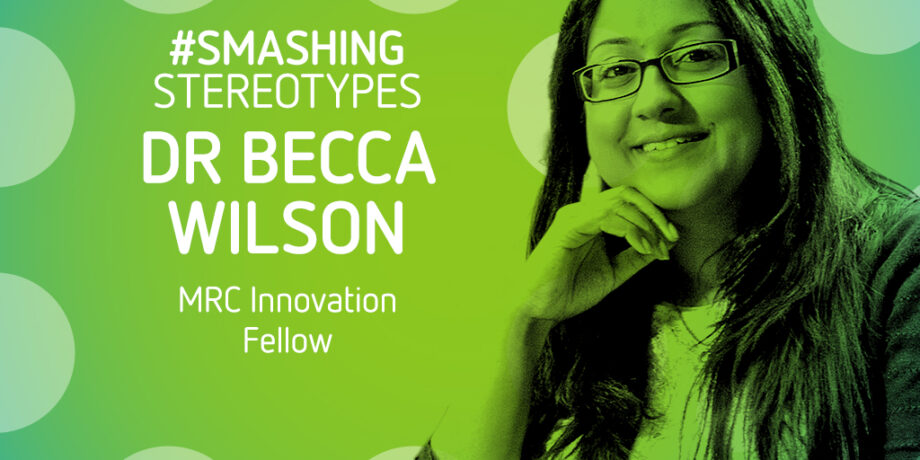
Dr Becca Wilson
MRC Innovation Fellow
Dr Becca Wilson has an interdisciplinary research background spanning the space and atmospheric sciences, data publishing and health sciences domains as well as work in research-related roles within research commercialisation/innovation, academic business engagement and public engagement. Prior to her fellowship, she lead DataSHIELD – managing this open source software project from an operational perspective and contributing centrally to both strategic input and development of the software for the distributed analysis of sensitive health and biomedical datasets. DataSHIELD research interests included the integration of DataSHIELD with existing infrastructures and emerging technologies (e.g. BRISSKit , virtual reality), developing DataSHIELD methodologies and infrastructures for new data types (text, geospatial) and scoping applications of DataSHIELD beyond biomedicine (e.g. digital humanities, academic publishing).*
One of my earliest memories is from when I was six years old, and my mum and grandmother took me to the Natural History Museum. I fell in love with the dinosaurs and space, and I knew right then and there that this was something I wanted to pursue as a career.
My career has been filled with the variety that comes from having a science degree. I’ve done academic research among different fields such as geology, planetary science, atmospheric research. I now work in a couple of really interesting and different spaces. Firstly, I help build tools that help health researchers to share and use medical data safely. I also work on visualising data within immersive environments such as virtual reality. Essentially, I get to combine the latest immersive technology with research to showcase data in an engaging way. No two days are the same, which is one of the best parts of my job.
Being a disabled researcher, there are definitely a number of stereotypes I want to smash. I think normalising disability in society generally, but also within the STEM industry is something I’m really passionate about. It is so important to show disabled children and students that there are role models for them in science careers and beyond.
We are starting to see more and more disabled graduates coming through our universities, and we need to provide role models they can identify with in a variety of sectors. As a wheelchair user, there are a number of setbacks I must overcome to do day to day activities – in particular logistics, building access and transport. Sometimes I need up to a month in advance to source an accessible airport transfer via a taxi, or to check venue accessibility. So the smallest things like going to a meeting in a different city or country is very challenging and requires significant planning. One piece of advice I have for anyone considering a STEM career is that if you’re passionate about a subject area or career path, that will help with motivation through things like the exam season.
Back when I was six years old at the Natural History Museum, I bought a toy to remind me of that amazing day. It stayed with me during my undergraduate degree, my PhD, and I’ve had it throughout my career as a reminder of the enthusiasm I held for science when I was six years old.
Sometimes you have tough days, but that toy is my visual cue and reminder for maintaining an interest in STEM.
—
Click here to go back to view more scientists who are Smashing Stereotypes.
*The information featured in this profile was last updated in March 2020.
The Smashing Stereotypes campaign is supported by 3M.